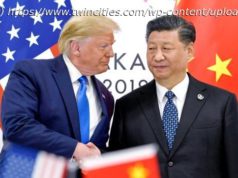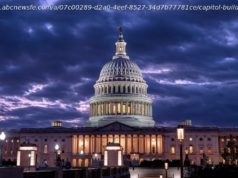Much of the legal fight in the Florida recount was in the courtroom of U. S. Judge Mark Walker, who’s in charge of at least seven lawsuits. The Bill Nelson-Rick Scott U. S. Senate race hangs in the balance.
Florida’s historic statewide election deadlock shifted to the courts on multiple fronts Thursday as Democrats and Sen. Bill Nelson intensified efforts to expand the pool of votes and the amount of time needed to recount them.
Democrats won some legal battles and lost some, but they need to win consistently if Nelson is to close his gap with Republican Gov. Rick Scott in their race for the U. S. Senate. Scott’s advantage increased by 41 votes, to 12,603 votes.
Much of the legal combat took place in the expansive fifth-floor courtroom in Tallahassee of U. S. District Judge Mark Walker, a bow-tied, sharp-tongued jurist who’s in charge of at least seven election-related lawsuits.
Working through the night, Walker issued a post-midnight order Thursday giving voters until 5 p.m. Saturday to fix mail and provisional ballots that were rejected because of mismatched signatures.
The order applies to an unknown number of voters who were “belatedly notified” that they had a signature problem. Walker called it “a limited order providing limited relief for a limited number of affected voters.”
Scott called the decision “baseless” and filed an appeal with the 11th Circuit Court of Appeals in Atlanta, as did Secretary of State Ken Detzner and the National Republican Senatorial Committee. The Atlanta court upheld Walker’s decision and denied the Republican appeals.
“We will now expect rigorous compliance by all 67 counties,” said Marc Elias, an attorney for Nelson.
Walker’s order, issued at about 1 a.m. Thursday, said Florida’s “questionable practice” of curing ballot signature mismatches, with a state-mandated deadline the day before the election, has “no standards, an illusory process to cure and no process to challenge the rejection.”
As a result, he said, it does not pass constitutional muster.
“Let this court be clear,” Walker wrote. “It is NOT ordering county canvassing boards to count every mismatched vote, sight unseen. Rather, the county supervisors of elections are directed to allow those voters who should have had an opportunity to cure their ballots in the first place to cure their vote-by-mail and provisional ballots now, before the second official results are fully counted.”
Nowhere in Walker’s order does it provide instructions on how voters should be notified they have until Saturday to cure their signature mismatches.
Figures presented in a five-hour hearing Wednesday showed that 45 of the state’s 67 counties have rejected 3,688 mail ballots and 93 provisional ballots because of signature mismatches.
Walker firmly rejected a request by Democrats that he order the state to produce the names of every voter affected by the signature mismatch ruling. Those voters, if contacted, could help Nelson narrow his vote deficit, but Walker was having none of it.
“I am not going to be used by either party to obtain information to reach out and target individual voters based on their party affiliation,’ Walker said. “That’s just the kind of gamesmanship that will undermine the electoral process. I will have no part of it.”
In unusually strong language, Walker rejected Nelson’s request to give counties more time to complete machine recounts. In response, Nelson’s lawyers filed a state lawsuit asking for a hand recount of all Palm Beach County ballots, which will be heard at 1:30 p.m. Friday in Tallahassee.
“There is a complete dearth of evidence before this court concerning the status, progress or expected completion of the ordered recounts in Palm Beach County,” Walker wrote.
Like many Floridians, Walker was keeping track of the changing statewide vote totals in the razor-close races for Senate and agriculture commissioner, as he checked the laptop in his courtroom while listening to testimony.
But the totals changed very slightly as all 67 counties planned for the start of manual recounts under intense scrutiny from the public, political activists and the media.
A long-time former elections supervisor, Ion Sancho of Tallahassee, said manual recounts can attract large, unruly and highly partisan crowds that could make things worse.
“Pronouncements, outbursts, demonstrations all increase tensions,” Sancho testified in Walker’s courtroom in yet another lawsuit brought by two advocacy groups.
Walker did not issue an order preventing Scott from playing any role in the ongoing recounts, as Common Cause and the League of Women Voters requested in yet another lawsuit that accused Scott of abusing his authority.
Scott has only recused himself from serving on the three-member statewide canvassing board that must certify the final results, scheduled for next Tuesday, Nov. 20.
“He [Scott] has disparaged two supervisors of elections. I’ve watched the video,” Walker said in court. “How do I glean from that the governor is actually going to take some untoward action?”
Herald /Times Tallahassee Bureau staff writers Elizabeth Koh and Lawrence Mower, and Miami Herald political reporter David Smiley contributed to this report.






